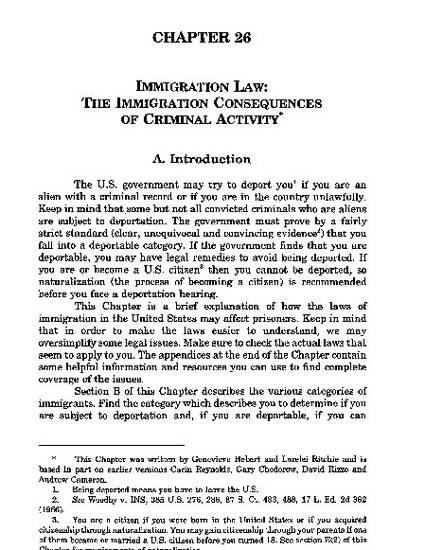
- Immigration Law and
- Law
Immigration laws in the United States may affect prisoners, possibly resulting in deportation. Some convicted prisoners who are aliens may be subject to deportation dependent upon the government’s ability to prove by clear, unequivocal, and convincing evidence that they fall into a deportable category. Providing prisoners with sufficient knowledge and answers to potential deportation questions stemming from criminal convictions may delay and thwart these proceedings.
By beginning with a categorization of the different types of immigrants in this country, a convicted prisoner will be better able to determine for themselves whether they are subject to deportation. If they are, this determination will assist in how the prisoner can go about postponing or potentially avoiding deportation altogether. Additionally, a detailed explanation of the deportation process, including the grounds for deportation, the various crimes that will warrant deportation and the types of deportation proceedings can serve to better inform a potential alien. Lastly, in evaluating the immigration consequences of criminal activity, it is essential to explore what legal remedies and relief a possible prisoner may seek utilizing the United States Code. Framing this guide on the legal issues of deportation in the form of a question and answer format gives prisoners a general and simplified overview on the immigration consequences of criminal activity.
